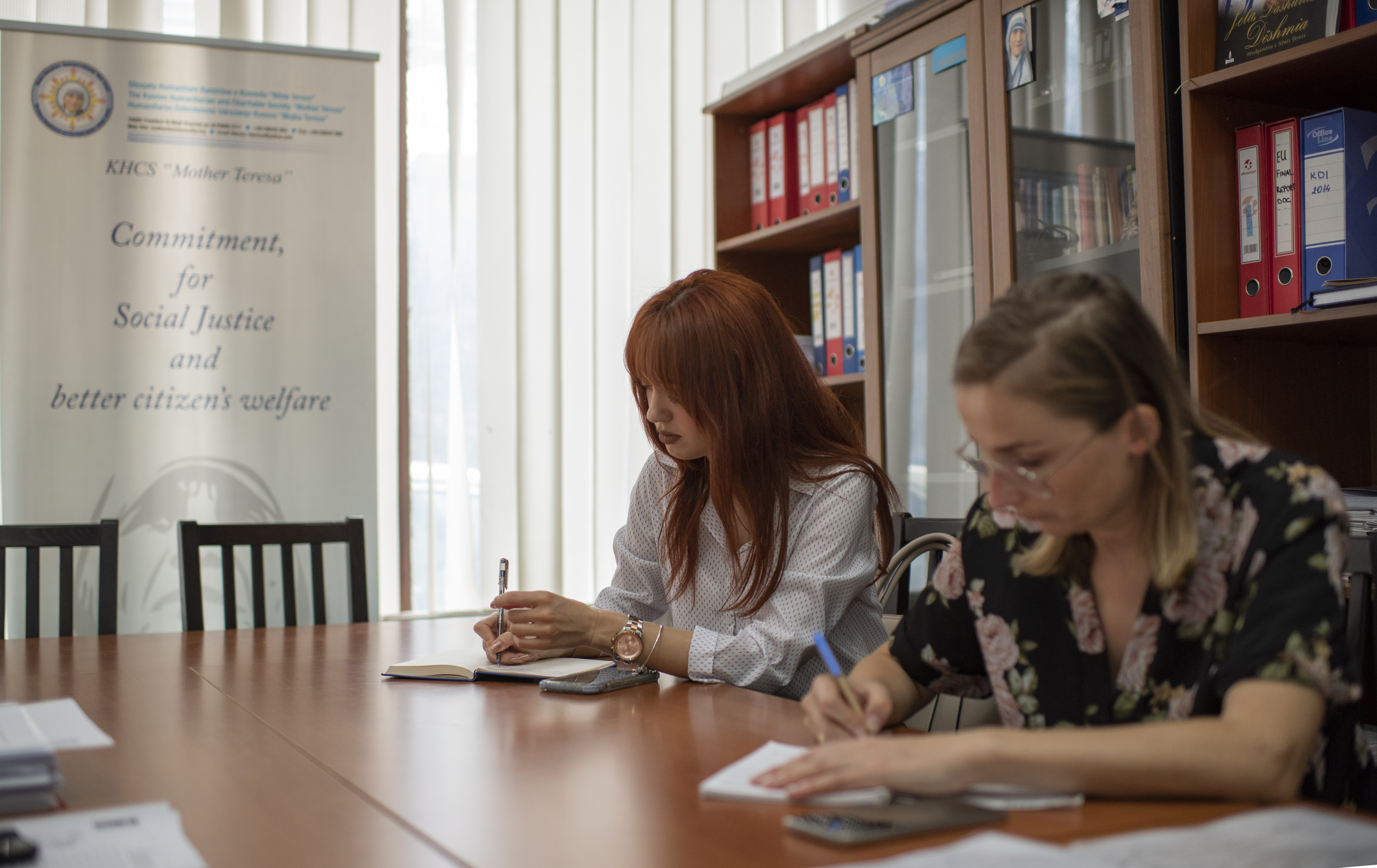It Takes a Village to Create a Better Life
August 19, 2022

World Humanitarian Day is celebrated every year on 19 August to pay tribute to aid workers who risk their lives in humanitarian service, and to remind everyone of the people affected by various crises around the world, including Kosovo.

When the most vulnerable are not able to fulfill their basic needs for food, shelter and health care, humanitarian aid brings relief. The goal of humanitarian assistance is to save lives, alleviate suffering, and maintain human dignity.
One of the most prominent humanitarian organizations in Kosovo is the Humanitarian and Charitable Society “Mother Teresa” with 32 years of experience in helping people in Kosovo, named after the Nobel Prize winner for Peace, Mother Teresa, the nun who devoted her life to helping people. When the NGO’s leader, Zef Shala is asked why “Mother Teresa,” he explains that their vision is to fulfill at least part of Mother Teresa’s work in humanitarian help.



NGO ‘Mother Teresa’ operates one of the four mobile clinics that have been dispatched as part of the Response to COVID-19 Emergency and Early Recovery Support project in 2021, funded by the European Union and implemented by UNDP Kosovo. But the organization’s collaboration with the United Nations dates back to 1994. “In 1999, we managed a few large-scale programmes, especially the ones with the World Food Programme UNHCR, UNDP, and many, many others,” says Shala.



“What I am most proud of is the fact that we dealt with a million internally displaced persons during the 1990s, but with the help of volunteers, none of them died due to a lack of food or shelter,” remembers Shala. “During those years, we had 96 mobile clinics and we worked in 44 centers,” he adds, as he explains that their work would have not been possible without donors and the help of volunteers. According to Shala, “when all contribute, wonders happen.”
A brand for social justice, the NGO presents a reputable and credible organization committed to support dimensions of social cohesion, as well as productive and just communities. “The mobile clinic we received last year through UNDP, financed by EU in response to the impacts of COVID pandemic helped us work faster and more efficiently. We managed to bring public services to people living in the most remote parts of Kosovo, mainly the elderly and women in rural areas of Prizren, Gjakovë/Đakovica, Pejë/Peć and Obiliq/Obilić region, where we have assisted around 200 elderlies, providing 1,600 different services,” says Shala.



The mobile clinic team travel to outskirts of these municipalities attending to families in communities most affected by the COVID-19 pandemic, primarily focusing on elders who live alone.


“We try to visit them daily to provide them with sustenance and offer medical assistance, or even to just check on them, but with the families living far from one another, it is a challenge to attend to all who need our help in a day,” says Shala


He further explains how beneficial the mobile clinic has been in overcoming these challenges, especially taking into consideration the increased number of social cases due to the pandemic, the rise in gender-based violence along with the stagnation it has brought to women's empowerment, and the consequences of the deepened economic crisis. “8% of people in Kosovo have some sort of disability and require special care, and most of our beneficiaries do not have any means of coming to us, but the mobile clinic has allowed us to take care of them, especially the elderly who have no one else to look after them,” says Shala.



Shala is proud of the NGO’s collaboration with local and international partners because really it takes a village to create a better life. “Together with development partners and people we have rebuilt houses and infrastructure so that we can get on the sustainable development path. Today we need simultaneous support from donors and the institutions of Kosovo to aid the development of Kosovo, with an increased focus on women’s empowerment. That is why projects like the Humanitarian Assistance Project are needed. It means the world to me, and it means that together we all work according to the same shared values, and the most important one is to help people have a better life,” he concludes.


The other three of the project’s mobile clinics are utilized by NGO Agency for Free Legal Aid, Handikos Gjilan/Gnjilane, and Horizon Consulting LLC. All four specialized vehicles provide much needed services to people in need, living in vulnerable situations, primarily in rural and far-flung areas across Kosovo.
The objective of the mobile clinics is to facilitate and increase access to services based on people’s rights, by providing social and legal counseling, and health assessments, depending on their need. Support is provided to families and communities most affected by the COVID-19 pandemic, primarily targeting people living in extreme poverty and those struggling to make ends meet. Particular focus is on single-parent households, non-majority communities, domestic violence and gender-based violence survivors, and people living in remote areas with reduced mobility and limited access to services.
The EU-funded Humanitarian Assistance Project (HAP) is at the heart of UNDP’s COVID-19 recovery efforts and based on the United Nations’ ‘leave no one behind’ principle. The components of the HAP project - disbursement of vouchers for those living on social assistance; the deployment of the UN Community Volunteers to Centers for Social Work through Kosovo; the interventions at the Centers and residential shelters; the deployment of the mobile clinics all have one aim in common: to provide relief to those in vulnerable situations.

Story by Elsa Kelmendi and Danijela Mitic, photos by Arben Llapashtica for UNDP Kosovo.

 Locations
Locations



